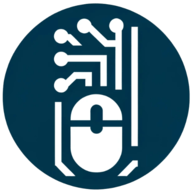The world of software development is in a constant state of flux, with new technologies emerging at a rapid pace. This blog post aims to explore these emerging technologies, shedding light on their potential impact on the software industry. We'll delve into the intricacies of these technologies, their applications, and how they're shaping the future of software development.
The Rise of Artificial Intelligence in Software Development
Artificial Intelligence (AI) is making significant strides in the software industry. It's not just about creating intelligent machines anymore. AI now plays a crucial role in automating software development processes, improving efficiency, and reducing human error.
Machine learning, a subset of AI, is particularly influential. It enables software to learn from data and improve over time without being explicitly programmed. This technology is revolutionizing software testing, predictive analysis, and decision-making processes in software development.
Deep learning, another AI subset, is also making waves. It's a machine learning technique that teaches computers to do what comes naturally to humans: learn by example. Deep learning is a key technology behind driverless cars, enabling them to recognize a stop sign or distinguish a pedestrian from a lamppost. In software development, deep learning is used for complex problem solving, enhancing the capabilities of software applications.
Blockchain: Beyond Cryptocurrency
Blockchain technology, while initially developed for cryptocurrency, has far-reaching implications in the software industry. It offers a new way to store and transfer data securely, using a decentralized, transparent network of computers.
In the software industry, blockchain can enhance security, transparency, and efficiency. It can be used to create secure, decentralized databases, improve supply chain management, and even prevent fraud in financial transactions.
Smart contracts, a key feature of blockchain, are self-executing contracts with the terms of the agreement directly written into code. They offer a way to automate and secure online transactions, and their potential uses in the software industry are vast.
The Internet of Things (IoT) and Software Development
The Internet of Things (IoT) is a network of physical devices connected to the internet, collecting and sharing data. This technology is transforming various industries, and software development is no exception.
IoT devices generate a massive amount of data that needs to be managed and analyzed. This has led to the rise of new software development practices and technologies, such as real-time data processing and edge computing.
Moreover, IoT is driving the need for more robust security solutions in software development. As more devices become connected, the potential for security breaches increases, necessitating advanced software solutions to protect data.
Augmented Reality (AR) and Virtual Reality (VR) in Software Development
Augmented Reality (AR) and Virtual Reality (VR) are changing the way we interact with software. These technologies offer immersive experiences, opening up new possibilities for software applications.
In software development, AR and VR are used to create interactive, immersive applications. These technologies are particularly useful in industries like gaming, education, and healthcare, where they can provide engaging, realistic experiences.
Moreover, AR and VR are driving the need for new software development tools and practices. Developing for these technologies requires a different skill set than traditional software development, leading to the emergence of new programming languages and development tools.
Quantum Computing: The Next Frontier in Software Development
Quantum computing, while still in its early stages, promises to revolutionize software development. Unlike traditional computers, which use bits (0s and 1s) to process information, quantum computers use quantum bits, or qubits, which can represent both 0 and 1 at the same time.
This capability allows quantum computers to process information at an exponentially faster rate than traditional computers. This has significant implications for software development, particularly in areas like cryptography, optimization, and machine learning.
However, quantum computing also presents new challenges for software developers. Developing software for quantum computers requires a deep understanding of quantum mechanics, and there are still many unknowns about how to best use this technology.
Serverless Architecture: A New Paradigm in Software Development
Serverless architecture is a new paradigm in software development that allows developers to build and run applications without having to manage servers. This technology is powered by cloud services, which automatically manage the infrastructure needed to run applications.
In a serverless architecture, developers can focus on writing code, while the cloud provider takes care of the rest. This can greatly improve productivity and reduce costs.
However, serverless architecture also presents new challenges. It requires a different approach to software development, and there are still many questions about how to best use this technology.
The Future of Software: Embracing Emerging Technologies
The software industry is on the brink of a new era, driven by emerging technologies like AI, blockchain, IoT, AR/VR, quantum computing, and serverless architecture. These technologies are not only transforming the way we develop software but also how we use it. As we continue to explore and understand these technologies, we can expect to see even more innovative, efficient, and secure software solutions in the future.

